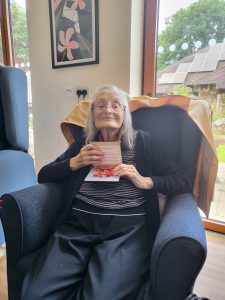Fifty years in schools
If any child should have failed at everything, it was me. I was born during the economic depression, my father was severely maimed as the result of a railway accident, and my mother died suddenly in 1942 as a result of war traumas. Fortunately, I went to live with my paternal grandparents in the country, where I played happily, chasing wild goats and messing about in the village stream.
My mother taught me to read in English and Welsh, but it was granddad who transformed me into a reader. He told me and read wonderful stories that stirred my imagination. With the village children, I dawdled on my long, unwilling way to school. It was a rough and tumble existence, with not much school learning, but good support in the home. I was lucky that the headmistress of the grammar school had suffered a similar bereavement as a child, and saw that I had ‘potential. Miss Dorothy Jones said that if my family was not prepared to maintain me at school until the end of the sixth form, she would do so herself. I owe her a very great debt; and have tried to provide support to similar youngsters in my time. I went to a small secondary school, with a dedicated staff, some were war veterans. Much was expected of pupils: academically, culturally and in sport. The friends I made then remain so sixty years later, and the community of ‘railway families’ continues to provide support, humour and succour to its members across the world, although the actual railway line has long since disappeared.
From this warm, Welsh community I went away to college and university. It was a very big step for a poor girl, with the sixth form teachers giving me pens and paper for my studies. From this experience, I learnt to understand the problems of other youngsters in similar circumstances. I soon learnt that one bad to help friends, but also one had to strive alone. It was no good looking for help at home, one had to learn survival tactics. As a very poor, newly qualified teacher in Birmingham I had to cope with a class of forty five, six year olds with insufficient paper and pencils. It was a happy time with a large, young staff, all learning to cope with very limited resources. We had an excellent Teachers’ Centre with pertinent courses and a highly supportive advisory staff. From there, I moved back to a village school in Wales, where the head enjoyed attending local funerals, leaving me in charge of pupils, some aged fourteen; again one adapted. There were no climbing frames, but some good, strong trees and the new County P.E. Adviser arrived to find the pupils and myself up the trees! It was a most happy time, using the local environment, the music and poetry and the flora and fauna to enhance young children’s learning. Even today, some of those pupils still keep close contact with me. Several now live in Western Australia.
I was headhunted’ by HMI for a job in a large School on the English/Welsh border near Chester. They needed a teacher of music and one who could teach Welsh as a second language. I found myself using drama and art, springing from the young children’s own experiences, to enliven the learning. To the consternation of the head, I painted the rim of the blackboard and the cupboards sky blue and draped pretty materials around the displays. This was in the 1950s, so my colleagues thought I was very ‘odd’… The Head and The LEA agreed that it would be a good idea if I got a post in London and undertook a part-time Froebel Diploma Course. Again my luck was in, I taught in a new, beautifully designed primary school near a wood in North London, and the head was a Welshman! 1 enrolled for the Saturday course in Buckingham Palace Road, Victoria, and the fellow next to me, taught in Essex, but came from North Wales. With forty two children in a class of six and seven year olds, using ‘a discovery approach’, it was very hard work, as well as attending the course each Saturday. The Course tutor used to visit me in school to see how the children and I were progressing and how I kept and used records. One pupil asked me, “Have you got a boyfriend? And countered that by saying “What a silly question, you ain’t got time!” My five year stay there was a very good experience in understanding how children learn. From there I was promoted to another local school, in the same LEA, and worked with yet another Welshman. He spoke Welsh and the children were fascinated by the language. We had an inspection and the reporting inspector suggested I attend Miss Dorothy Gardner’s’ Child Development’ full-time course at London University School of Education. I was accepted, and yet another Welsh person, Miss Margaret Roberts, who, like me, had strong family connections with Barmouth, was course leader. On the course I undertook a study, in depth, of periods of transition in early education, and visited many clinics, nursery schools and urban and rural schools in London and West Yorkshire. It was a most inspiring course, providing profound insights into how young children develop. It changed my way of thinking about learning and teaching.
Again I was head hunted by another HMI, who suggested I return to Wales as Senior Lecturer in Education. I had a spell running a large school and then took up the lecturing post in South Wales,
working through the medium of both languages. The students were great. We had much fun having ‘mock’ eisteddfodau’, and staging melodramas and musicals. I tried to apply psychology to classroom situations, gave demonstration lessons, arranged group work and had individual planning sessions for teaching practice with small groups. It was exhausting work, but most rewarding, especially when children gained much from lively, highly interesting and appropriate activities. Those students are now head teachers, many nearing retirement. Many are close friends and continue to communicate with me, especially at Christmas. To them and their children I am known as ‘Anti Dot’. For twenty years between 1964 and ’84 I put pressure on myself into undertaking additional degree courses in London and Liverpool, I successfully completed these, but now wonder just how much the specific studies helped me to understand the complexities of learning and teaching, especially in mathematics and science. I did, however, much enjoy the long-term in-service projects with ninety Welsh schools, endeavouring to improve the teaching of science.
Again, I was approached by HMI and asked to apply for the inspectorate in England and Wales. I was loathe to leave the college, but my stepmother was going blind, and I had to find a post in North Wales. The inspectorate obliged, and I was able to supervise the caring of my infirm parents, while undertaking a very arduous task of being the ‘Early Years’ and Primary Phase Inspector for North and Mid-Wales. This entailed much driving, writing and listening in some difficult situations. I supported young teachers and those with various difficulties, but my first priority was the education and welfare of children. Initially, I found some heads somewhat chauvinistic in attitude, but when I offered to take an infant class for the day, because no supply teacher was available, the news spread like wild fire. “This one knows how to teach.” I was sometimes mistaken for the new P.E. Adviser or the Psychologist. They said I looked too young to be an HMI. They had not seen one for ten years! Gradually, I learnt to write in ‘Inspectorese’, gave many lectures, ran workshops and residential courses across Wales. We had fun, and used National Trust properties as a basis for a term’s work for three or four schools in the area. They then set-up exhibitions, children and staff talked to course members on the first day of the courses, and then, in a week, course groups had to plan, implement and display their work, and present a dramatic, artistic and scientific version of their theme for children aged five to eleven years. It was exhausting, but most enjoyable. It brought to these Welsh teachers the Froebel ideas and the insights I had gained on Miss Gardner and Miss Margaret Roberts’s Child Development Course. For this work I received the OBE and was made a White Bard of The National Eisteddfod of Wales. This was a very great honour, and my mother’s family, whom I had not seen since her death in 1942, suddenly appeared, and that was, for me, the greatest joy.
In 1992 I retired officially, after twenty years in the inspectorate, and worked part-time with students on a school-based teacher training course in Shrewsbury schools. It was a super experience for final year students, because we analysed the needs of children, planned accordingly and worked with full-time staff and LEA Advisers in implementing the work and evaluating the project. In 1994 The Chief Inspector of Schools in Wales, pleaded with me to help out, just for a term, with bilingual inspections of small, rural schools. I got a team of three inspectors together, and we worked for six years. My sympathy always was with the children, the parents and the head and staff. It was very demanding work, one had to have eyes in the back of your head and had to listen intently to children, individual teachers, heads and governors. In three days one would have to probe under the surface and work out how best to praise and how to tackle problems, without undermining the school’s confidence in itself as a learning community. In one school on the coast a six year old girl asked the tall, handsome support inspector, was he the boss, then she asked the male lay inspector, and finally turned to me and said in Welsh ‘Surely the woman can not be the boss!’. I smiled sweetly and said, “Oh yes she can, and one day you are likely to be the boss too!” Fortunately, the position of women has changed, attitudes are more open, supportive and friendly, but being an inspector is as much a strain for a sensitive person as it is for those who are being inspected. It demands much humour, sensitivity and compassion in a trying situation.
Since giving up inspections in the year 2000, I have concentrated on OMEP work, and enjoyed the company and co-operation of colleagues in the UK, Europe and across the world. I am struggling to learn Spanish, my Welsh certainly helps me, and OMEP colleagues in Cuba appreciated my attempts, especially when I talked to young children. That was a great bonus. Over a long life in education, I have received many blessings, after a very poor start. My thanks go to the heads and teachers who were so co-operative, the many students, pupils and young children, who have brought such joy to my life and especially to my life-long friends and to Dorothy Jones and Dorothy Gardner without whom I could never have made this educational journey of discovery.
Dorothy Selleck (Eiddona) of Dolgellau, Gwynedd.






